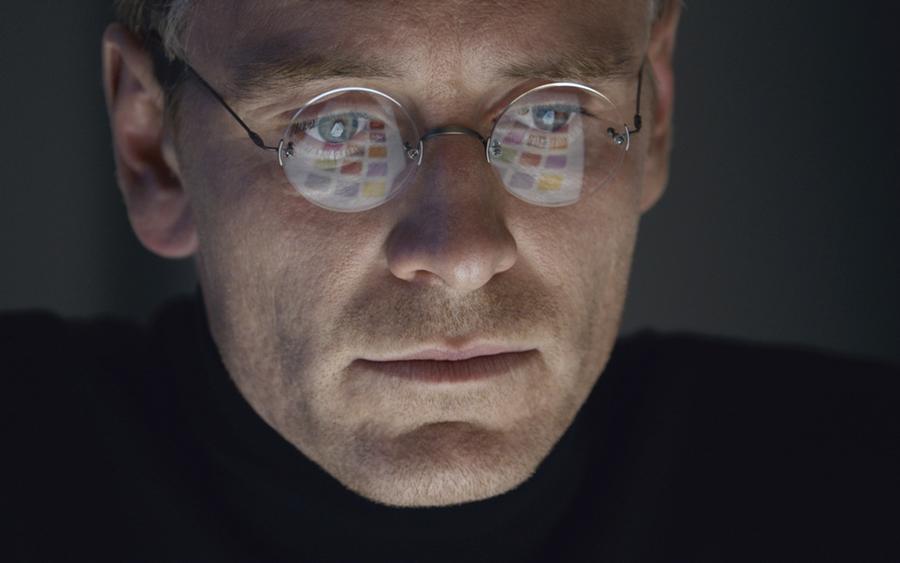
A talented cast and crew has come together to create a memorable film telling a story about an icon of a generation. “Steve Jobs” is high-caliber film backed by Oscar winners and nominees. This biographical fiction is beautiful, genius and confident in all the right places, making it one of the best films of the year.
By now, movies about the Apple co-founder might seem stale. The rise and fall and return of Steve Jobs has been nailed into most of our brains in one way or another. The movie recognizes this, and it creates a unique storytelling structure that peeks into the life of Jobs at three different years.
The whole movie takes place backstage, just before the launches of the Macintosh, NeXT and iMac computers. Between these acts, quick news montages inform the audience about everything that happens in between. Like Apple, the design is minimal, and we don’t need anything else.
That’s because “Steve Jobs” doesn’t use its title character to tell a history lesson. This is a character study fueled by subtle details and egotistical dialogue. Michael Fassbender plays the self-absorbed Jobs without missing a beat.
With expert articulation, on-point movement and some solid makeup that ages Fassbender with the plot, his performance is a major component of the movie. The audience watches Fassbender dissolve into a ruthless, materialistic character. Was the real Steve Jobs as diabolical as he’s painted in this movie? That’s up for debate, but don’t let that drive you away from cinema at its best.
A collection of side characters is used to explore Jobs’ shifting personality. Apple co-founder Steve Wozniak (Seth Rogen), programmer Andy Hertzfeld (Michael Stuhlbarg) and former CEO John Sculley (Jeff Daniels) all intersect with Jobs minutes before various famous product launches. Like the three ghosts haunting Ebenezer Scrooge, they all exemplify the past, present and future of what could have happened if Jobs was less unconventional, spiteful and self-involved.
Then there’s Jobs’ former girlfriend Chrisann (Katherine Waterston) and daughter Lisa, who he pushes away in hopes that they won’t exist. The only person who consistently supports Jobs is Joanna Hoffman (Kate Winslet), his friend and confidant who is able to verbally spar almost as well as he. Each actor succeeds in a way a member of an ensemble should. They all work off one another, have big scenes and are memorable despite being the secondary focus.
None of this could have been done without Aaron Sorkin as the screenwriter who, the more I think about it, may be the only writer capable of creating such narcissistic thrill rides. Sorkin’s previous work includes “The Social Network” and TV show “The Newsroom.” His dialogue is so sharp it could kill; audience members hang off of each and every line, eagerly waiting for more. The script provides jokes while also displaying an almost cruel emotional depth. We wouldn’t dare look away from the screen for a second.
The script, combined with Danny Boyle’s subtly unconventional direction of quick edits and superimposed quotes and images, creates a hypnotic experience. Like its characters, the movie is more involved with itself than others would dare. “Steve Jobs” instantly captivates, making it seem like mere minutes have passed. Ultimately, it ends leaving us energized and electrified. We’re left wanting more of what Jobs was doing: fixating on never-before-seen success and never backing down.
_MOVE give “Steve Jobs” five stars out of five._